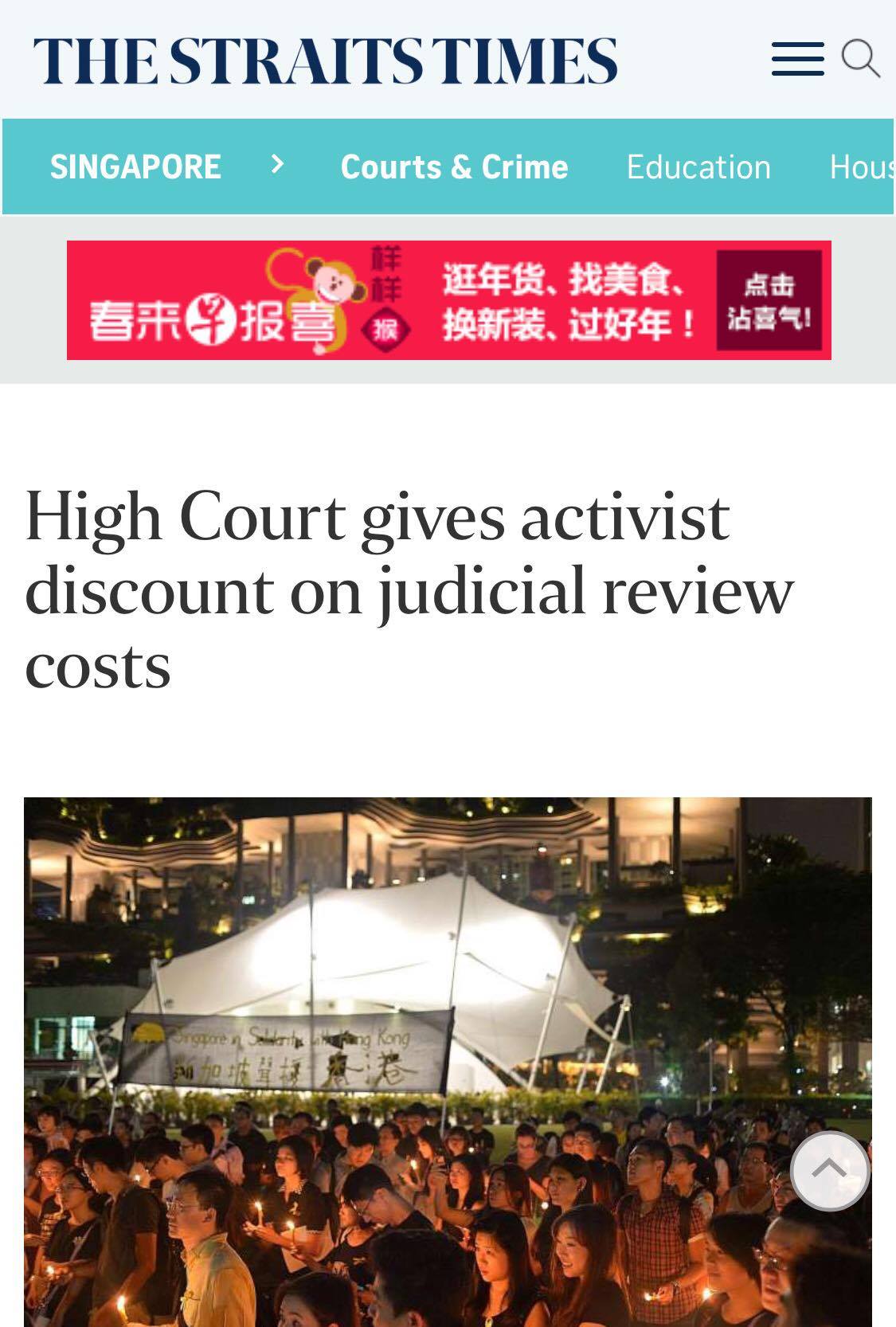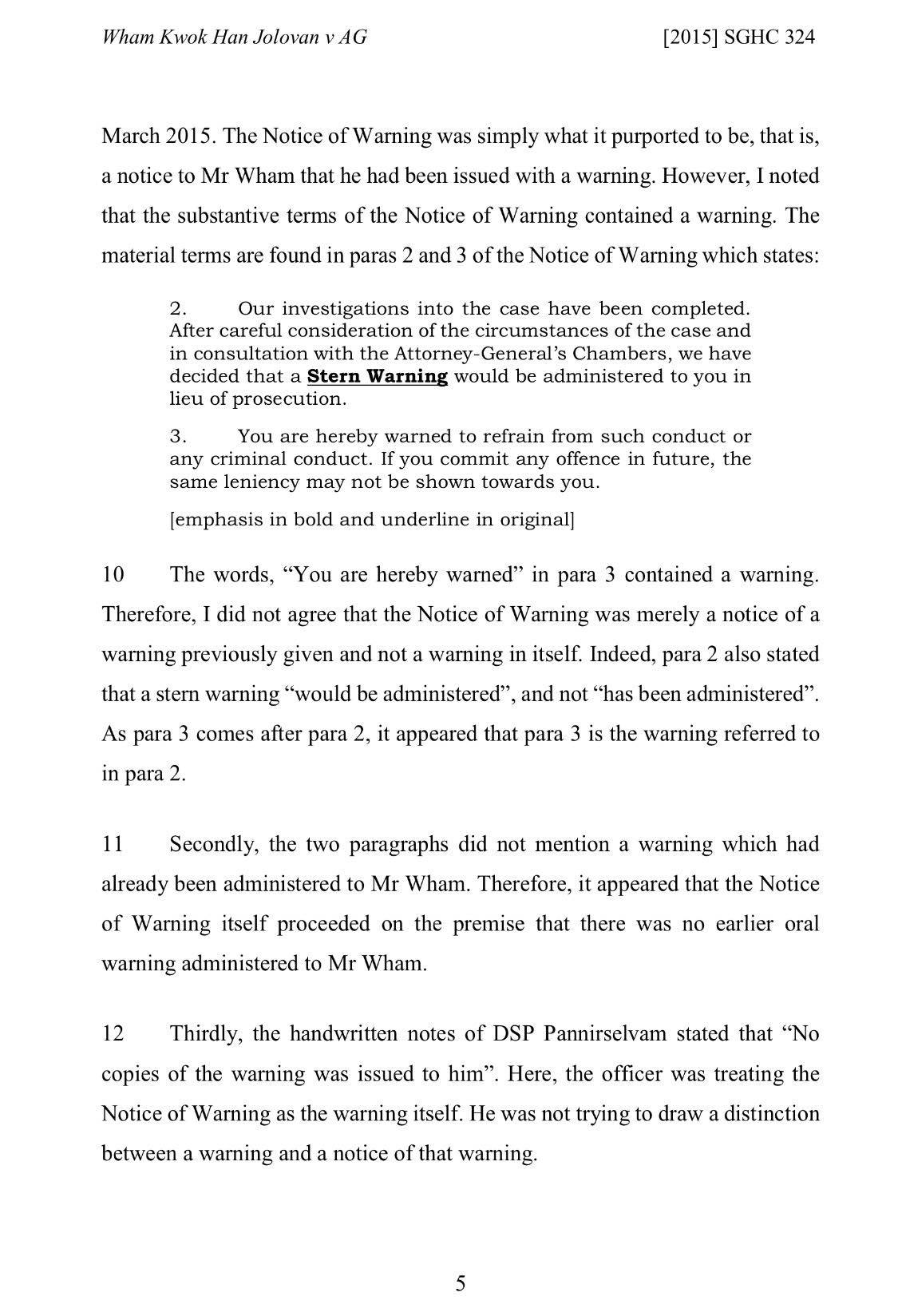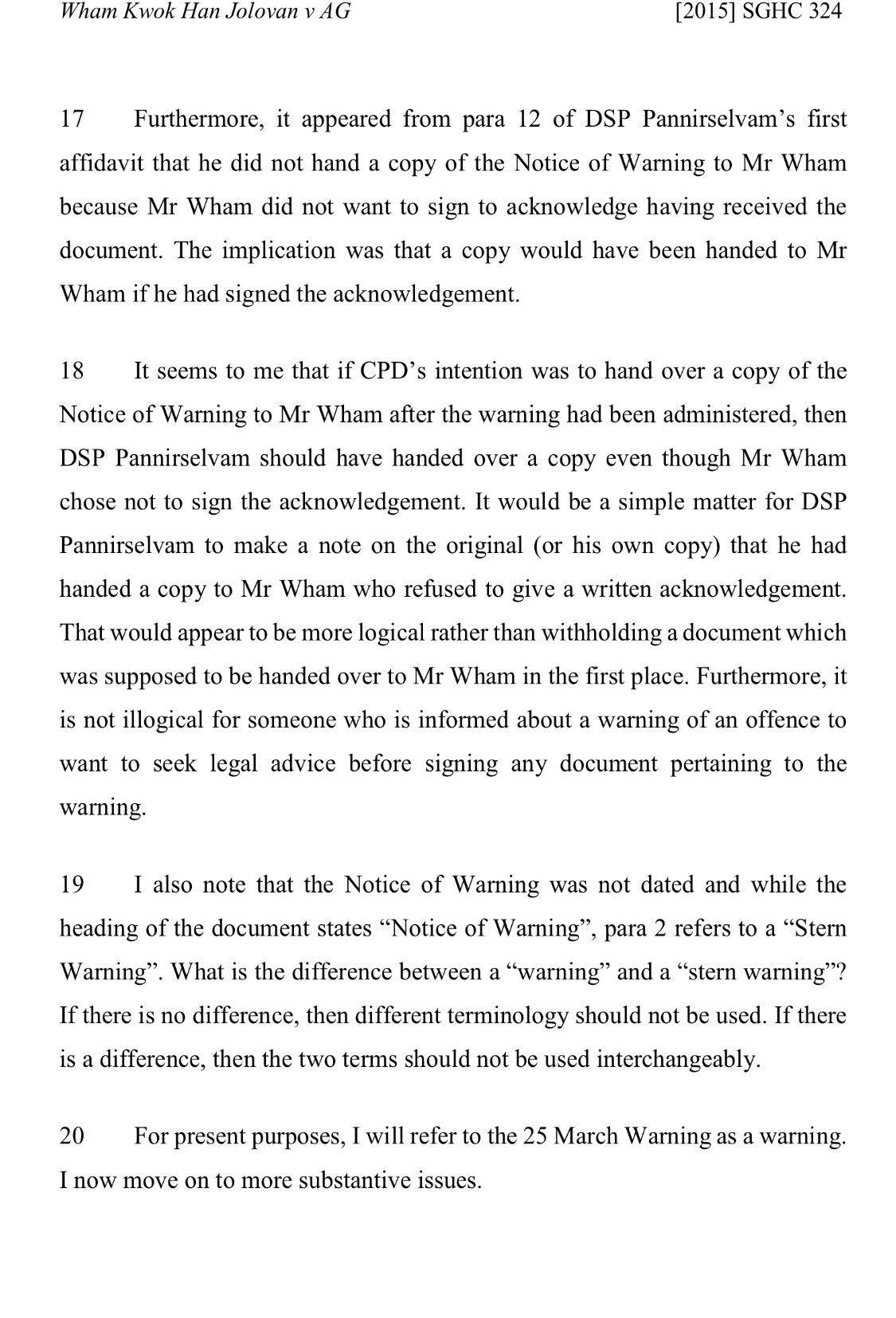Raise your hands if you know who Jolovan Wham is.
No? The activist, an executive director of HOME, a migrant worker NGO, has been ordered to pay S$6,063 in costs to the Attorney-General Chambers (AGC) after his request to quash (render invalid) a police warning that had been issued against him was dismissed.
Raise your hands again if you have heard of this organisation — The Singapore Police Force (SPF).
Maybe? They've been criticised by a High Court judge for their poor handling of the warning they issued Wham, after the activist received foreigners at a Hong Lim Park candlelight vigil for the student protests in Hong Kong.
Justice Woo Bih Li said the police should have handed over the notice of warning to Wham when he asked for it, instead of withholding it from him, while at the same time pointing out that the notice itself was poorly crafted.
Anyway, this was how the mainstream media covered the case yesterday:
1. TODAY
 Source: TODAY
Source: TODAY
TODAY editors thought that Jolovan Wham deserved to be featured on a first-name basis. Because every Singaporean knows who this celebrity is.
2. The Straits Times
 Source: The Straits Times
Source: The Straits Times
The Straits Times editors appreciated the fact that Wham is actually not so famous and decided to call him an activist instead. They might've then thought to themselves — hey, let's highlight the reduction of legal costs as a discount, since Singaporeans love discounts and this is a 20 per cent knockoff!
To cut the long story short:
Wham was issued a "stern warning" (maybe it was, maybe it wasn't; we'll explain why later) by the police for breaching rules against foreigners participating in events at Hong Lim Park without a permit in October 2014.
Wham was verbally warned, but he refused to sign the Notice of Warning shown to him without first getting a copy to run by his lawyer. SPF, however, wouldn't share it with him.
Two months later, the police delivered a letter saying the warning had been delivered and the matter was closed.
Concerned that it would be in his record, Wham went to court in a bid to quash the police warning under a judicial review.
The case was dismissed by Justice Woo, but more because a police warning has no legal effect, and so there's no real need for a court to review or quash it. Wham was then charged legal costs because the general approach for these things is if you lose an application, you have to pay. That said, Wham's lawyer was quoted as saying in The Straits Times that the legal costs were reduced to "take into account aspects of the process by which the warning was issued".
Woo's judgement is significant, because now we all know that prosecutors cannot use police warnings against us in sentencing if we were ever charged and found guilty of something.
What was interesting for us, though, is SPF's poor handling of the police warning and the Justice Woo's criticism of the processes:
You can read the full judgement (Wham Kwok Han Jolovan v Attorney-General), which was uploaded on socio-political site The Online Citizen.
But we would like to point out some of the more fascinating statements by the Judge in these two pages:
Page 5
 Source: The Online Citizen
Source: The Online Citizen
In other words, the Judge is saying that the "Notice of Warning" was confusing. On one hand, it said "You are hereby warned". Yet, elsewhere in this "notice", the wording creates the impression that a warning has not been given to Wham yet.
Page 7
 Source: The Online Citizen
Source: The Online Citizen
Here, Justice Woo implied that SPF's withholding of the notice was not logical, especially since the notice was intended for Wham in the first place. Moreover, Woo empathised with Wham's position to seek legal advice before signing any document, declaring that doing so was "not illogical".
Woo also questioned the police's choice of words. He said that different terminology — "warning" and "stern warning" — should not be used interchangeably.
According to The Straits Times and TODAY, a spokesman for the AGC said last December that police and the AGC were "reviewing the process by which stern warnings are administered and the use of the notice, in the light of the High Court's comments in the judgment".
Moral of the story?
It is not a bad idea to know one's own rights. Sometimes the police (and the media) mess up. And the judiciary, thankfully is fair and impartial. And is not afraid to whack everyone.
Top photo from NUS website.
If you like what you read, follow us on Facebook and Twitter to get the latest updates.
If you like what you read, follow us on Facebook, Instagram, Twitter and Telegram to get the latest updates.
